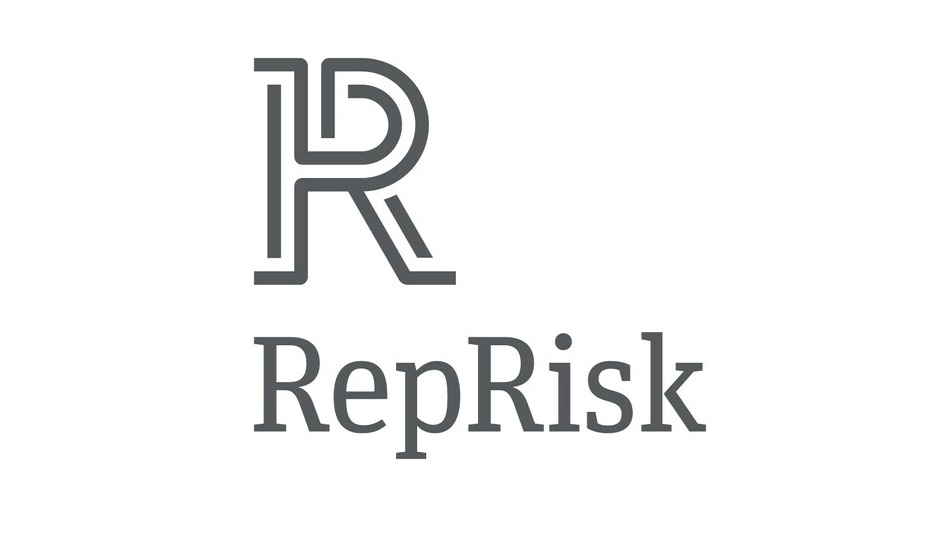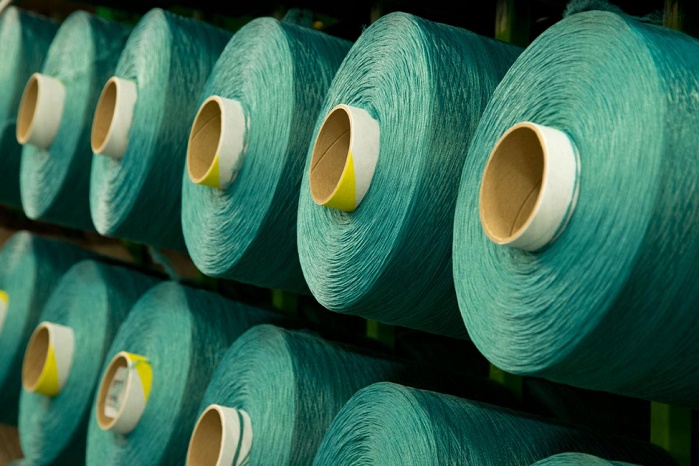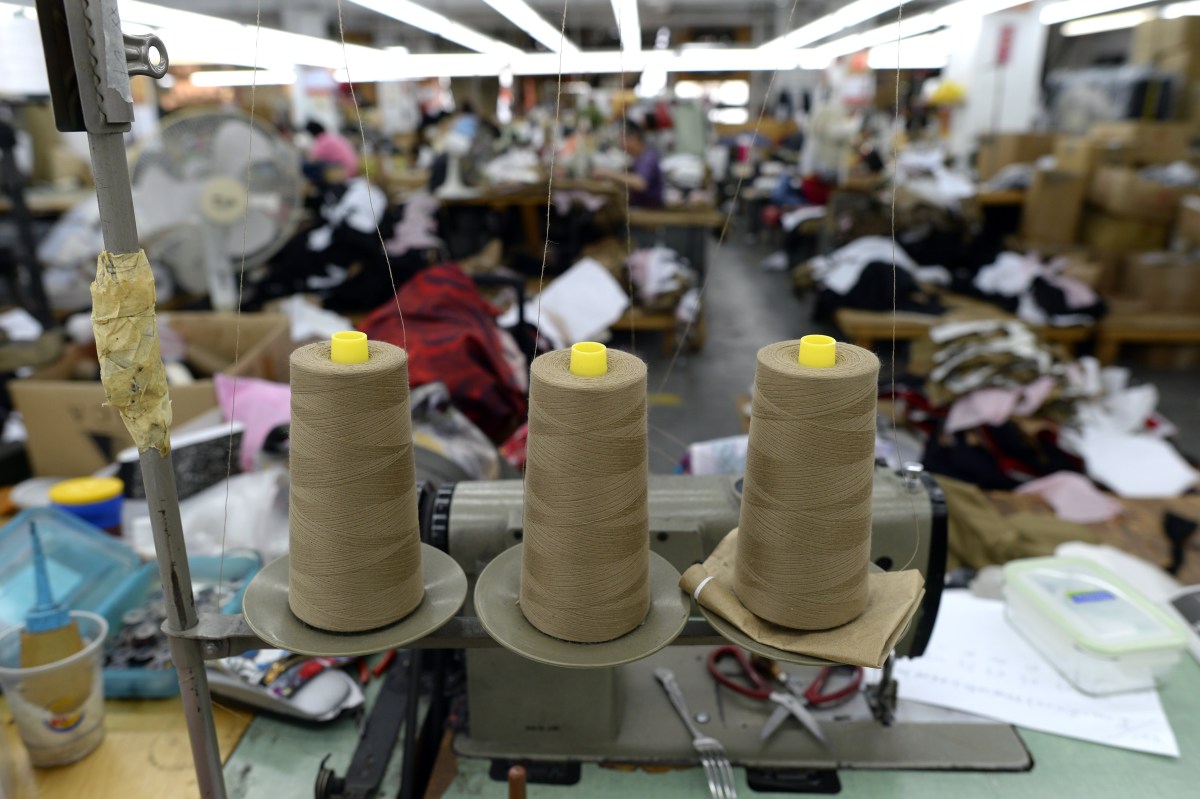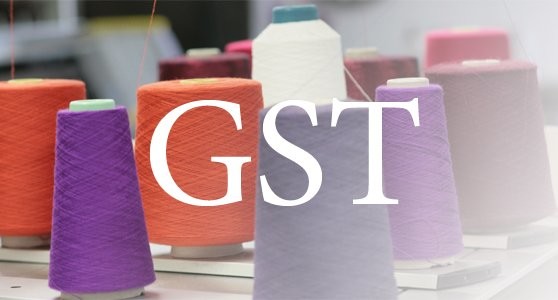FW
Mahmud Hasan Khan, President, The Bangladesh Garment Manufacturers and Exporters Association (BGMEA) is urging global clothing retailers and brands to increase their orders from Bangladesh. Khan highlights the country's tariff advantages over competitors in the United States during a meeting with international buyers in Dhaka.
Emphasizing on the importance of sourcing more from Bangladesh, Mahmud Hasan Khan, President, BGMEA, calls for a unified compliance framework. Suppliers face significant challenges as different companies enforce varying standards for social, compliance, and other key audits. It would be beneficial for all sourcing firms to adopt a common code, he states.
Khan also encourages US retailers and brands to consider reducing tariffs on Bangladeshi apparel to further improve its competitiveness. The meeting also explored ways to diversify products to attract a wider range of business opportunities.
In total, 42 representatives from European, American, and Asian companies participated in the forum, showing a continued interest in Bangladesh's garment sector.
American Eagle Outfitters is betting on promotions and new products to drive sales, leading the company to forecast better-than-expected comparable sales in Q3, FY25. The news caused the apparel retailer's shares to jump 25 per cent after the market closed.
Apparel companies like American Eagle and Abercrombie & Fitch have been able to overcome a retail sector slowdown by using promotions and targeting more affluent consumers.
American Eagle has been trying to boost demand through its marketing campaigns, including the controversial ‘Great Jeans’ denim campaign featuring actress Sydney Sweeney. This follows previous partnerships with tennis player Coco Gauff and actress Jenna Ortega. The apparel maker has also entered into a partnership with NFL player Travis Kelce's clothing brand, Tru Kolors.
The company expects its quarterly comparable sales to increase by a low single-digit percentage. This is a positive forecast, especially since analysts were expecting a 0.3 per cent decline, according to data from LSEG.
American Eagle also expects its annual comparable sales to remain flat compared to the previous year, while analysts had estimated a 1.1 per cent decline.

The global apparel and textile industry, long celebrated for its role in democratizing fashion and creating jobs across continents, is under a new spotlight. A report titled ‘Anatomy of Supply Chain Risks’ by Zurich-based ESG data firm RepRisk has laid bare the systemic fragilities woven into the sector’s supply chains. From human rights abuses to environmental violations, the report paints a sobering picture of an industry grappling with vulnerabilities that could shape its future growth path.
Looming crisis
The RepRisk report draws on an expansive database of publicly available information, NGO findings, and stakeholder sentiment. The analysis underscores how ESG (environmental, social, governance) risks are not isolated events but deeply entrenched in the apparel supply chain. Notably, the industry consistently ranks among the most exposed to human rights and labor-related risks, with incidents rising year after year. Environmental lapses from water contamination to unsustainable raw material sourcing are compounding the challenge.
Table: Distribution of ESG risks in apparel & textile supply chains
|
Risk category |
Percentage of total incidents (T&A) |
Percentage change (last 3 years) |
Sub-iIssues |
|
Labor & Human Rights |
45% |
+15% |
Forced labor, child labor, workplace safety, wages |
|
Environmental |
30% |
+12% |
Water pollution, chemical use, waste management, emissions |
|
Governance & Corruption |
25% |
+8% |
Bribery, corruption, lack of transparency |
Source: RepRisk, “Anatomy of Supply Chain Risks” (illustrative data)
The concentration of high-severity risks in South and Southeast Asia, the backbone of global apparel production is particularly concerning. More than 60 per cent of ESG incidents are traced to this geography, underscoring the fragility of supply networks that power global fashion retailers. The RepRisk report doesn't just present numbers; it underscores the real-world consequences of these risks through anonymized case studies.
Case Study 1: The hidden cost of fast fashion
A global fast-fashion giant came under fire when reports revealed forced labor in its cotton supply chains. RepRisk had flagged early indicators from activist reports years earlier, but insufficient due diligence meant the brand overlooked red flags. The fallout was swift: reputational damage, consumer boycotts, lawsuits, and a significant dip in stock price. This case illustrates how ignoring labor risks translates into both financial and reputational shocks.
Case Study 2: Dyeing for change?
In South Asia, a textile dyeing mill supplying several international brands was caught discharging untreated wastewater into rivers. The resulting ecological damage and public health crisis led to regulatory crackdowns and eventual closure of the mill. Brands dependent on the supplier faced supply chain disruptions, proving how environmental negligence can spiral into operational breakdowns.
A double-edged sword for India
India, one of the world’s top textile exporters, is at the epicenter of this debate. The country’s industry employs over 45 million people and contributes nearly 12 per cent of total exports, yet challenges around informal labor, weak regulatory enforcement, and environmental compliance persist. Stakeholders say, the upcoming festive season demand in hubs like Surat and Ludhiana could strain supply chains further, as pressure mounts on smaller suppliers to meet tight deadlines often at the expense of labor conditions and environmental safeguards.
Table: India’s apparel & textile supply chain risks
|
Factor |
Current status |
Associated risk |
|
Workforce (45+ million) |
High reliance on informal labor |
Wage exploitation, poor safety standards |
|
Export Contribution (12%) |
Critical foreign exchange earner |
Vulnerable to global ESG scrutiny |
|
Dyeing/Processing Hubs |
Surat, Ludhiana, Tiruppur |
Water pollution, chemical discharge |
|
Cotton Sourcing |
Gujarat, Maharashtra |
Risks of forced/child labor in harvesting |
Indeed, the RepRisk report is more than a data compilation it is a wake-up call. As ESG-focused investing gains traction, brands that fail to strengthen supply chain accountability risk losing not only consumer trust but also investor confidence.
Takeaways for brands & investors
Higher transparency: Comprehensive supply chain mapping, including lower-tier suppliers, is essential.
Proactive risk monitoring: Tools like RepRisk can act as early-warning systems.
Stakeholder collaboration: Partnerships with NGOs, local communities, and regulators can drive change on the ground.
Investment in sustainability: Shifting to cleaner dyeing processes, renewable energy, and fair labor practices is no longer optional—it is survival.
From compliance to commitment
As consumer awareness grows with documentaries, social media campaigns, and activist pressure the demand for accountability is no longer limited to industry insiders. Governments are stepping in too. The EU’s Corporate Sustainability Due Diligence Directive (CSDDD) and the US Uyghur Forced Labor Prevention Act are forcing brands to rethink sourcing strategies.
For India and other South Asian hubs, this is both a challenge and an opportunity. By embracing ESG compliance, textile exporters could strengthen their competitiveness globally, while failure to do so could see orders diverted to countries with stronger compliance frameworks.
Thus the RepRisk report underscores a central truth: the apparel industry’s glossy storefronts and fast-changing trends mask a fragile and risk-laden foundation. The sector now stands at a critical inflection point either weave sustainability and ethics into its very fabric or face mounting crises that unravel its future.
A leader in flat knitting technology, Shima Seiki Mfg will showcase its latest advancements in sustainable and digital fashion at the the upcoming Avantex show in Paris, France. The exhibition will be organized from September 15-17, 2025 at Paris Le Bourget Exhibition Centre in France by Messe Franfurt France SAS. Shima Seiki will participate alongside its European subsidiary, Shima Seiki Europe
At the core of their exhibit will be subscription-based design software, Apexfiz that supports the entire creative process. This software allows fashion professionals to move from initial planning and design to color evaluation and realistic fabric simulation, all in a digital environment.
An important feature of Apexfiz is its ability to create 3D virtual samples. These digital prototypes are so accurate they can effectively replace physical samples, significantly reducing the time, cost, and material waste associated with traditional sample-making. The software achieves this realism by using scanned data from actual yarn to create virtual fabrics that are nearly identical to their physical counterparts. Apexfiz can simulate a variety of textiles, including wovens, circular knits, flat knits, and even embroidery.
These virtual fabrics can then be used in various 3D simulation programs, including Apexfiz to generate realistic product images. If a design is approved for production, the software can generate machine data, creating a seamless digital bridge between the design studio and the factory. By digitizing the supply chain, Apexfiz helps companies achieve their sustainability goals.
The functionality of Apexfiz is further enhanced by two web services from the Shima Seiki Online Services platform; yarnbank and Shima Datamall.
A leader in AI-powered textile technology, Smartex has achieved significant milestones in its mission to reduce waste and enhance efficiency in the textile industry. The company reported saving over 1.1 million kg of fabric, translating to a reduction of 8.1 billion liters of water, 6,739 tons of CO₂ emissions, and more than 24 million kw-hours of energy in Q2, FY25.
While knitting factories already see benefits from reduced fabric waste and defects, Smartex's recent projects have focused on the garment stage, where the financial impact is most significant. The results confirm, Smartex's technology consistently leads to more garments produced with less fabric, faster production with fewer accidents, and a more sustainable process with less waste.
Smartex is also increasing its global footprint and enhancing its technology to meet growing demand. The company is seeing a rising demand from textile factories in Asia for AI and automation solutions. To support this growth, Smartex has appointed Nik Wagner to lead its business expansion in the Asia-Pacific region, based in Hong Kong.
Smartex has continuously improved its AI models, which are now detecting a wider range of defect categories. The company has also launched a new feature that provides clients with real-time, dynamic reports powered by PowerBI, a highly requested tool for data-driven insights.
Smartex has released a major update to its system, making the interface significantly easier for factory operators to use. The new UI was designed with a minimalist approach, removing complex buttons and graphs to streamline the user experience.
Rieter will showcase latest products and solutions aimed at creating fully automated spinning mills at the upcoming ITMA ASIA + CITME 2025 in Singapore, from October 28 to 31, 2025.
The company's offerings will focus on efficiency and automation throughout the entire process, from bale transport and automated can transport to fully automatic packaging, including steaming, palletizing, and labeling. Rieter will also enhance its digital solutions to support these integrated systems.
Among the new machinery, the Omegaalap E 40 combing preparation machine stands out with its ability to produce 800 kg per hour, a 33 per cent increase over its predecessor, thanks to a faster lap changing process. This machine also boasts significant energy savings, using 30 per cent less power and 63 per cent less compressed air.
Another highlight is Rieter's new NEO-BD precision winding machine that produces packages at twice the speed of its previous model while maintaining high quality. The machine guarantees absolute precision in package density, yarn length, and individual package weight.
For cost-effective carded fiber spinning, the company will present its air-jet spinning machine J 70. This machine features a new twist element that dramatically increases production speed and ensures maximum raw material utilization.
In the components sector, the new Novibra spindle eNASA reduces a spinning machine's power consumption by 2 per cent to 4 per cent compared to conventional spindles, especially at high speeds.
Rieter will also be a major presence in the recycled yarn segment, showcasing projects and end products that use a high percentage of recycled content, including synthetic cellulosic fibers.
To improve customer service, the company will launch its new Rieter Webshop, a one-stop-shop for ordering spare parts, upgrades, and retrofit solutions for spinning and winding machines, streamlining the procurement process for spinning mills.
Researchers at The Hong Kong Polytechnic University (PolyU) have developed a groundbreaking method to precisely measure soft tissue deformation, a critical factor in the fit and performance of sportswear and functional medical wear. This innovation addresses a longstanding challenge in the apparel industry, where inaccurate measurements often lead to ill-fitting designs that compromise comfort and function.
Professor Joanne Yip, School of Fashion and Textiles pioneered a novel anthropometric method that uses image recognition algorithms to systematically assess tissue deformation while minimizing motion-related errors. She also created an analytical model based on elastic theory to predict how tissues will deform under pressure. This approach provides designers with highly accurate, data-driven insights into how garments interact with the body, which is vital for optimizing the performance and biochemical effectiveness of compression-based apparel.
Soft tissue deformation directly impacts everything from a garment's appearance and comfort to its physiological effects, such as blood circulation and muscle support. By integrating mechanical property testing, the new method accurately predicts tissue deformation. When validated against body scans, the measurements showed remarkable precision, with deviations of just 1.15 mm in static conditions and 2.36 mm during movement.
This technology is highly adaptable to compression-based garments including sportswear like leggings and functional medical wear like compression stockings and post-surgical garments, says Professor Yip. She explains, the analytical model can be customized for different garment types by adjusting parameters such as material properties and dimensions.
The research team used various sportswear leggings as samples to test their method. The findings provide actionable insights that connect material properties to garment fit and performance. This new framework not only advances biomechanical simulation for wearable applications but also provides a practical tool for optimizing the ergonomics of sportswear. Ultimately, it enables the creation of data-driven compression garments that can enhance athletic performance and help prevent musculoskeletal injuries.
Sudhir Sekhri, Chairman, Apparel Export Promotion Council (AEPC) has hailed the new GST reforms introduced by the Indian Government. He calls these measures progressive and forward-looking, saying, they represent a major step toward making India a developed economy.
According to Sekhri, these changes will streamline compliance for businesses, improve cash flow for exporters, and strengthen the entire textile and apparel value chain. He describes the reforms as a ‘decisive step’ toward boosting the ‘Make in India; initiative and enhancing the country's export competitiveness.
Sekhri thanks to Prime Minister Narendra Modi for his visionary leadership and support to the apparel and textile industry through ‘simplified, industry-friendly measures.’
This statement comes as the industry reacts to the GST Council's decision to lower tax rates on man-made fibers and yarns, which is expected to correct the long-standing ‘inverted duty structure.’ While the overall sector has welcomed these reforms, some industry bodies, including the Clothing Manufacturers Association of India (CMAI), have raised concerns about the impact of the 18 per cent GST rate on garments priced above Rs 2,500, which they believe, could negatively impact middle-class consumers and the organized retail sector.
A global leader in the production of regenerated cellulose fibers, Lenzing AG has appointed Milena Loveva as Vice President-Corporate Communications, Sustainability, Investor Relations, and Public Affairs. Loveva will be based in Austria and report directly to CEO Rohit Aggarwal.
This new role highlights Lenzing's dedication to strengthening its global market position, improving its engagement with capital markets, and advancing the worldwide sustainability agenda.
With over 20 years of experience in helping companies create value for their stakeholders, Loveva’s expertise spans corporate transformations, capital markets, communications, and sustainability. Her proven ability to create value during transitions along with her extensive knowledge of capital markets and strategic positioning, will help the company achieve its goals, says Rohit Agarwal CEO, Lenzing AG.
The appointment provides an opportunity to expand Lenzing’s influence in a fast-changing global landscape and contribute to a remarkable value creation journey, adds Lovela.
Loveva previously served as the Company Spokesperson at PORR AG, where she led the Group's Communications, Strategy, Investor Relations, and Sustainability functions. She holds a Master's degree in Business Administration from the Vienna University of Economics and Business.
All major industry leaders have expressed their strong support to the maiden edition of Textiles Recycling Expo USA, set to launch on April 29-30, 2026, at the Charlotte Convention Center in Charlotte, North Carolina.
Following a successful European launch in Brussels earlier this year, many exhibitors are committed to the US event, hoping to attract the same high-quality international visitors.
The exhibitor list includes industry players like Syre, Beyond Retro, Bank & Vogue, Valerius, Circ, and Debrand. As a Founding Exhibitor, Syre's participation is particularly significant, as the company prepares to open its new plant in North Carolina. The plant will have the capacity to produce 10,000 metric tons of circular polyester annually and is backed by major retailers like H&M, Target, Gap, and Houdini Sportswear.
The event is being sponsored by AATCC, with ReJu sponsoring a dedicated VIP area,
The expo has also partnered with leading associations to shape the event's content. It has roped in Accelerating Circularity as a Structural Partner, to help design a conference program that addresses the industry's most critical challenges and solutions. SMART (Secondary Materials and Recycled Textiles Association) has joined as a Founding Partner, lending its expertise and network to promote best practices and industry-wide collaboration.
Other supporters include the Southern Textile Association, Fashion Takes Action, and the North American Linen Association.
The expo will feature a showcase of pioneering technologies and services, along with an open conference theater hosting expert-led panels, keynote speeches, and in-depth discussions. This platform is designed to facilitate knowledge exchange and drive the shift toward a circular textiles economy.










